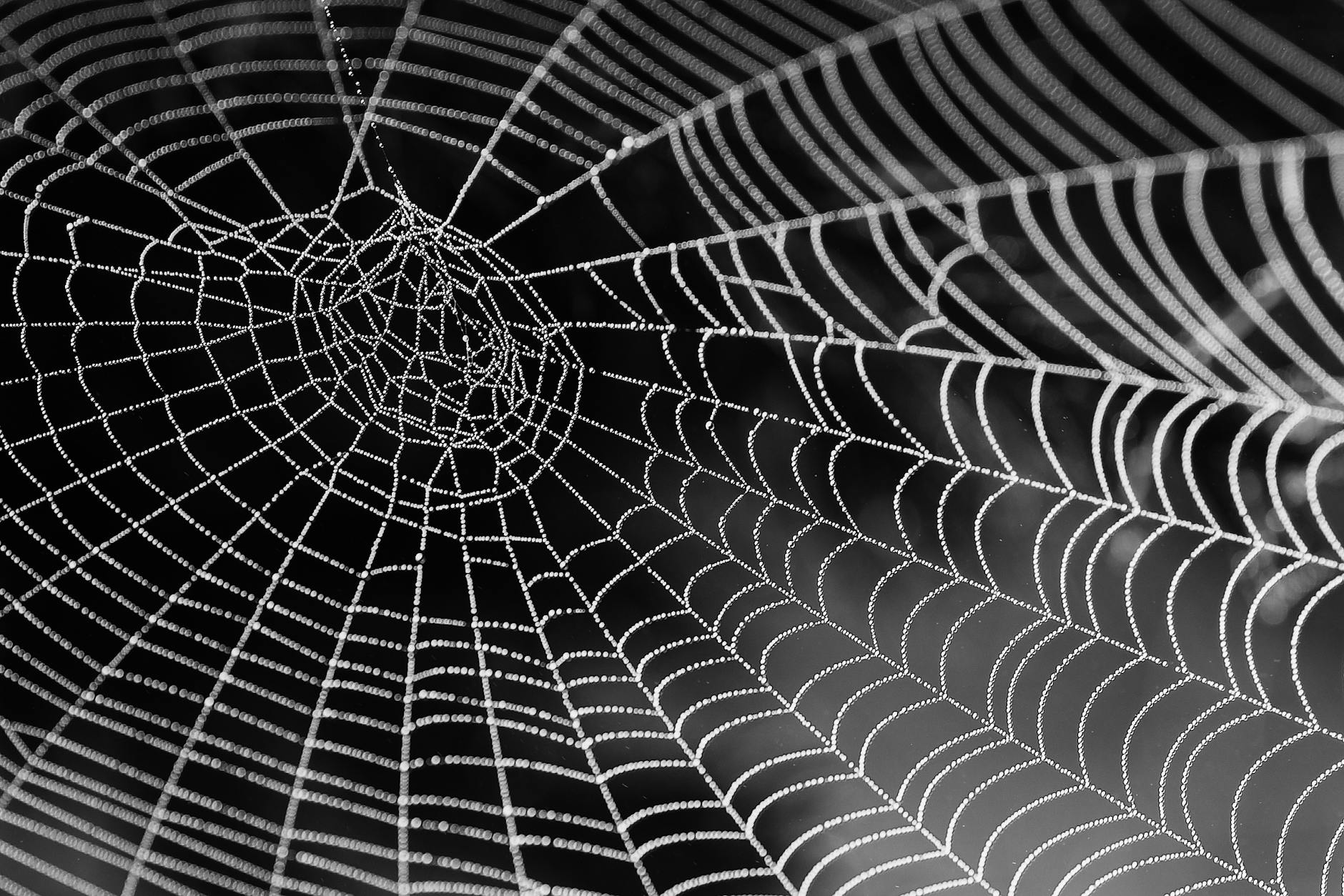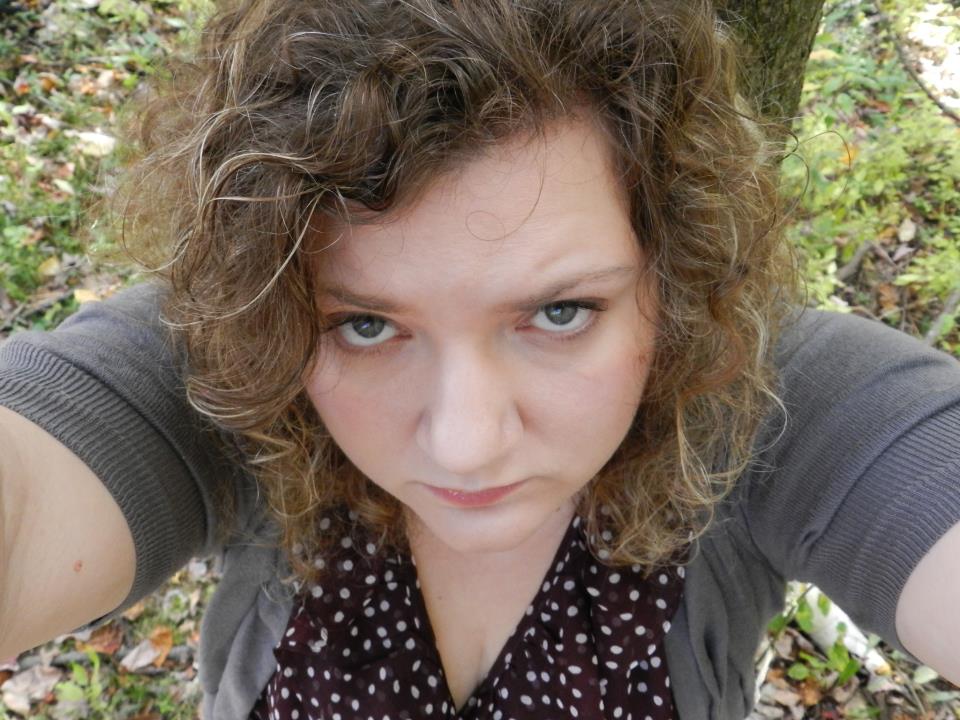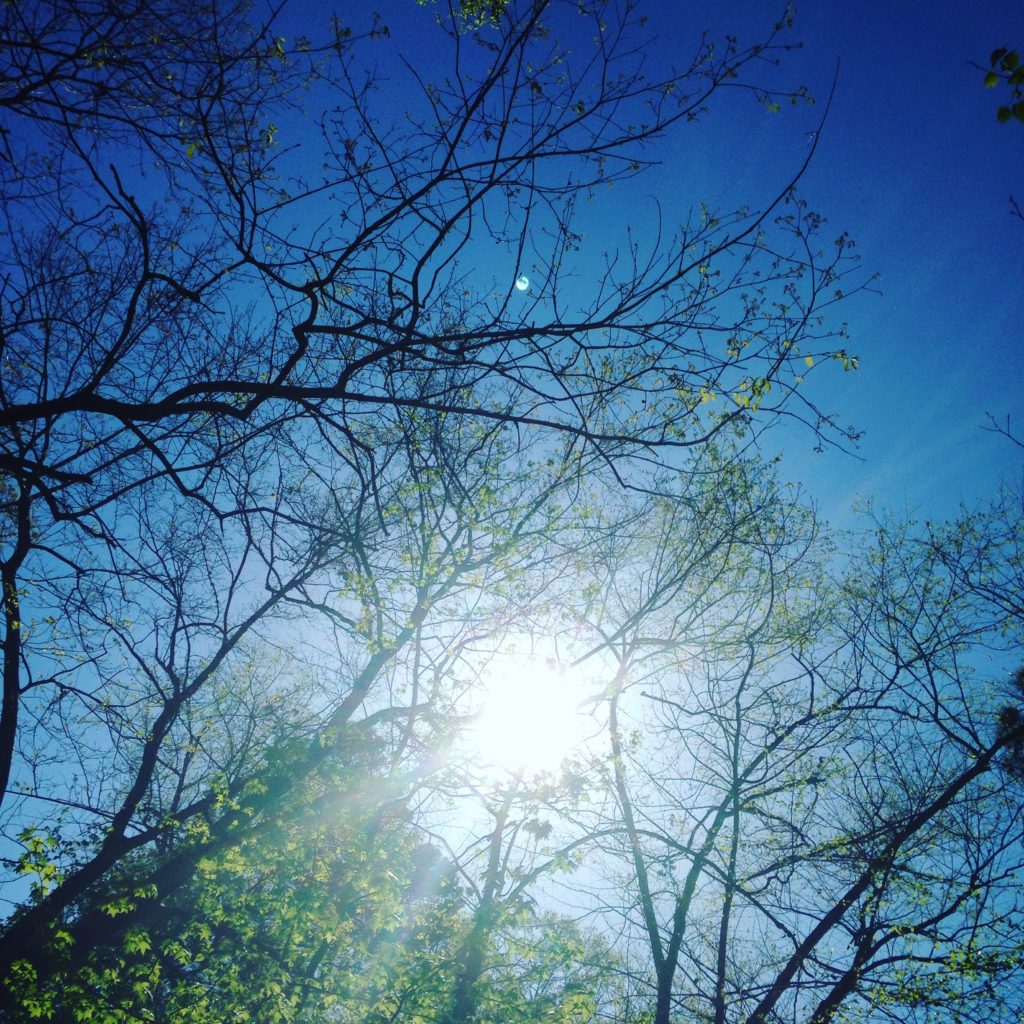
In August 2018, on hill overlooking the Salish Sea, I was walking through an old growth forest that grew suddenly dark and foreign. The other twenty members of the nature seminar seemed perfectly comfortable there. A few yards away, a woman with gray-blonde hair had placed her palm against a towering maple and was talking to it in low voice. Further away, a young man with a shadowy beard padded barefoot on the forest duff, then crouched next to a wild rose bush, eyeing it with loving intensity. Though I’d been anticipating a moment like this for an entire year, I somehow couldn’t do it.
I’d come here to Cortes Island, British Columbia, to join a class led by the geophilosopher David Abram, whose two books The Spell of the Sensuous: Perception and Language in the More-Than-Human World and Becoming Animal: An Earthly Cosmology I’d read so many times the pages were falling from the spines. Though Abram isn’t the only one to talk about how we humans have wandered far from our animal selves and have lost touch with something vital in the process, he’s one of the most ardent. I thought that by taking his class I might learn to connect more meaningfully to the natural world and to translate that connection into my writing.
Earlier that day, Abram had led us to a grove of cedars and sat cross-legged on the forest floor. A fringe of brown hair peeked from under his leather hat. His brown vest and shirt hung on him like a silken tent, and he used big, sweeping gestures as he spoke. “In oral cultures,” he said, “human language was nothing other than shaped breath. For our ancestors, air carried the words and the meaning.” He spoke of the “beings” of the more-than-human world, the crows, ladybugs, kingfishers, salmon, antelope, grizzlies, rocks, and soil. At a certain level, he told us with boyish excitement in his voice, everything in nature speaks, from the guttural sound of a stream to the squeaky ridges on crickets’ wings. Their difference from us, he continued, is the very reason they matter so much. When we stare too long into human-created things, we deteriorate. He then sent us out to have an encounter with one of these beings.
But now that I was in the forest attempting to do as Abram had asked, something was holding me back. Possibly I felt exposed. Was it okay to talk candidly to a piece of sky with others listening in? Or maybe I felt the relationship was moving too fast. How long does one have to know a Ponderosa before stroking its butterscotch bark? I’m not someone to force intimacy on a person, so perhaps that’s why I was finding it difficult to do so with a sandpiper, a boulder, a patch of moss. I passed another student lying flat, back against the ground, eyes trained on a moving cloud.
I’d never felt such discomfort over an assignment.
Abram was still sitting twenty yards away under the cedars, a slight smile on his face, as if he knew exactly what he was doing, as if he even took some delight in the fact that some of us lept into this encounter while others struggled.
Even if I couldn’t connect, I told myself, I could at least walk in silence and notice the shine of the alder leaves, the chalky aspen, the rugged fir, the ear-like oyster shell. But I resolved not to disturb a thing.
Still, like most writers and storytellers, I’m enthralled with the double-take, the looking back, because it’s the moment after something happens when images collect themselves, events unfold as drama, meaning accrues, and story begins to weave its disparate threads.
And what I saw just then, and saw again, was a silken web silvering in the afternoon light, each spoke double-tied at each cross thread, strung between two sword ferns. Suddenly, I was caught. I reached out to touch it, but then hesitated. What if the spider was nearby? I searched the vicinity, studying each leaf, each stem, the air between. I waited. When she didn’t appear, I placed the tip of my index finger on one diaphanous thread and felt it in an almost way, which is to say, it gently stuck to my skin then pinged back into shape as I pulled away. Was this the encounter I was meant to have? The language I was meant to hear? That for every intimate touch there’s a lingering in the pulling away. Or was I meant to see that these strange, nearsighted creatures spin to live, catching what they need in their gluey mesh?
As if out of nowhere, she came, the orb weaver, or yellow sac, or whatever she was, with her eight legs and eight-fold eyes. A few inches from the first perfect web, I noticed another one. More opaque and less pristine, filled with bits of leaf and twig, this second web hung hammock-like from a branch. She slipped into that hammock and rested, tense and still, legs poised.
As I gazed on her speckled belly, I was pulled out of myself into my childhood bedroom at midnight in my dressing gown and hiking boots, standing on my bed screaming bloody murder, my mother flying down the hall saying, “What’s wrong!”
“A spider!” I said. “I stepped on it and it came up through my boot. Or I thought it did.” My mother rubbed the sleep from her eyes as we watched the spider creep from under the dresser. She scooped it up in her hand and put it out the back door, shaking her head as she left. I was tough by default, growing up the only sister in a house full of brothers, and my arachnophobia made no sense to her. I wasn’t even able to bear the glossy fibers laced through the forest behind our Seattle home, and would refuse to go on hiking trips for fear of encountering a web, though it was thinner than an eyelash.
The spider on Cortes Island made her way to the larger, perfect web, and it was then I noticed that my one slight touch had damaged it. A few strands had stuck to my finger, leaving a gaping hole in the mesh. Something like grief shot through me for what I’d done in my clumsy attempt at an encounter. I wanted to say something. Sorry? But I didn’t know how to speak spider language except through silence.
I remembered that my irrational fear of spiders eventually resolved. I couldn’t recall how, but it must have had something to do with the year I taught Greek mythology to middle schoolers. I would stand at the front of a classroom in Richland, Washington, retelling the oral tales as the students squirmed and fidgeted in their seats. No tale intrigued them more than that of Arachne, the girl who, having challenged Athena to a weaving contest, made a tapestry showing all the ways the gods abused mortals, and for such harsh truth in such a gorgeous form, Athena turned her into a spider.
Or was it that other myth, the one I found in graduate school through the poet John Keats, at a time when I needed it most, that of Philomela? Tereus, her brother-in-law, raped her and then violated her a second time by cutting out her tongue. He thought he had ensured her silence, but Philomela turned that silence into a grave spinneret from which she wove a robe that told her story of pain, whereupon the gods turned her into a nightingale, and so she became a sister in metamorphosis with Arachne, and, it seemed to me then, with the soundless spider there on Cortes Island.
As these things were winding through me, Abram called us back to the cedars with Tibetan prayer chimes. We sat in a circle among the roots. “In oral cultures,” he said, “land is the primary pneumonic for stories. And so stories are intimately tied to the places where they happen.” He then asked us to share our encounters. One person witnessed a mercurial blue reflection on a rock. One felt vibrations under a clod of dirt. One was healed by touching the scar of a fir tree. One heard a maple whispering through her arm. As each person spoke, I felt as if the air itself was multiplying, diversifying, thickening with meaning.
As for my own encounter, it was only later, when I looked back, that I understood how the more-than-human world confronted me with the very thing that makes me human, the ability to let memory unspool. But something else happened, too. In the days that followed the encounter, I noticed webs everywhere, and no wonder. As I learned when I consulted that other, shadow Web, there are over 700 spider species in the province of British Columbia, and on Cortes Island, I was never more than a meter away from an arachnid. I saw the strands under the eaves of the guest house and woven into a blackberry vine, in the silver hair of the other seminar students, and in the diamond chain dangling from a young girl’s neck as she danced to African drums on the last evening on the island. Every web was a double-take, a reminder of how story is built.
 In my last Superstition Review
In my last Superstition Review 